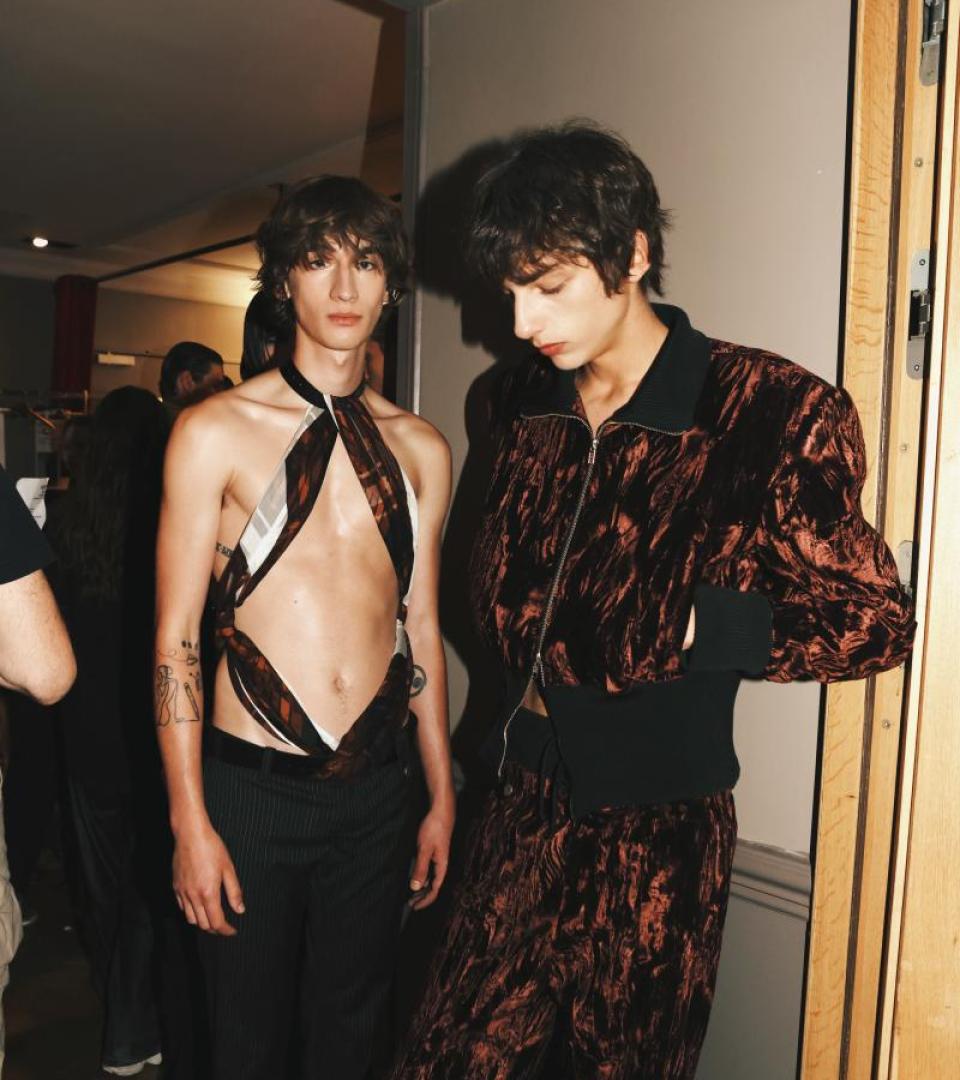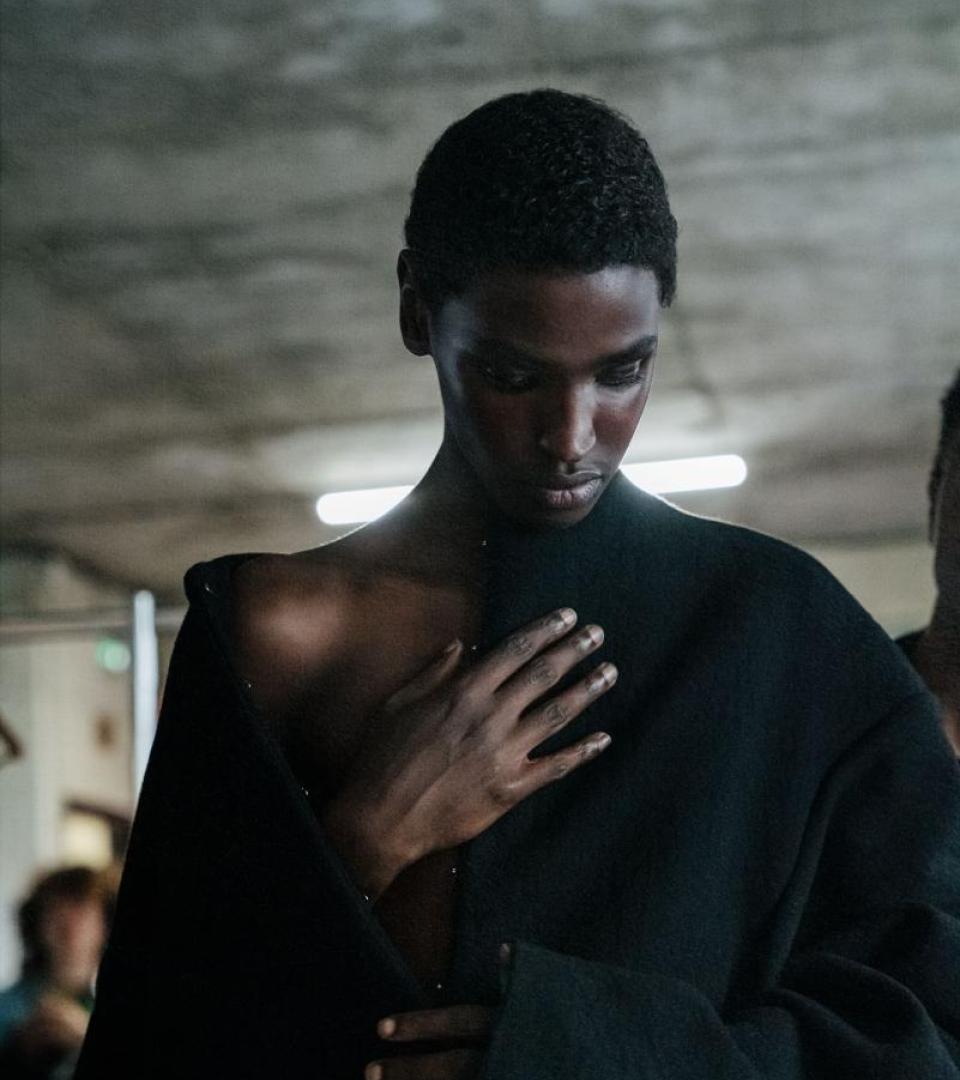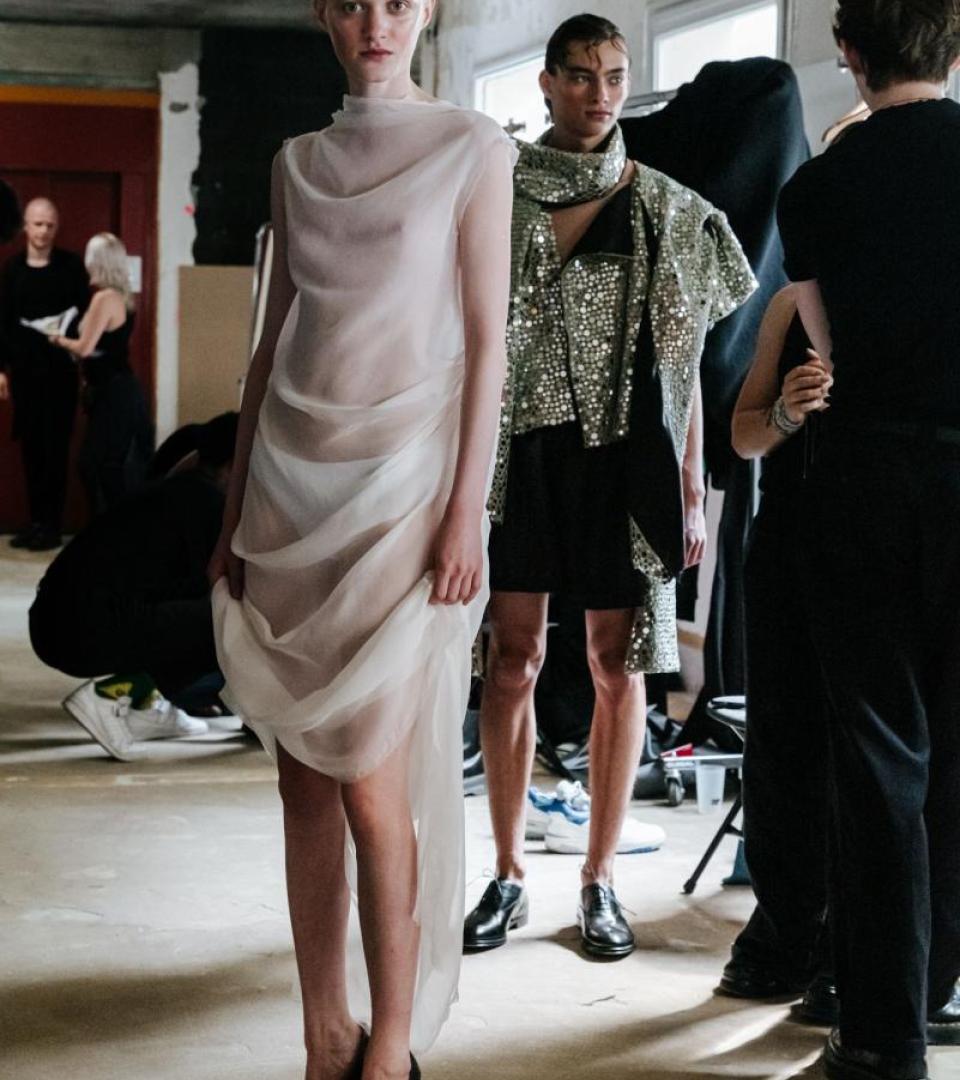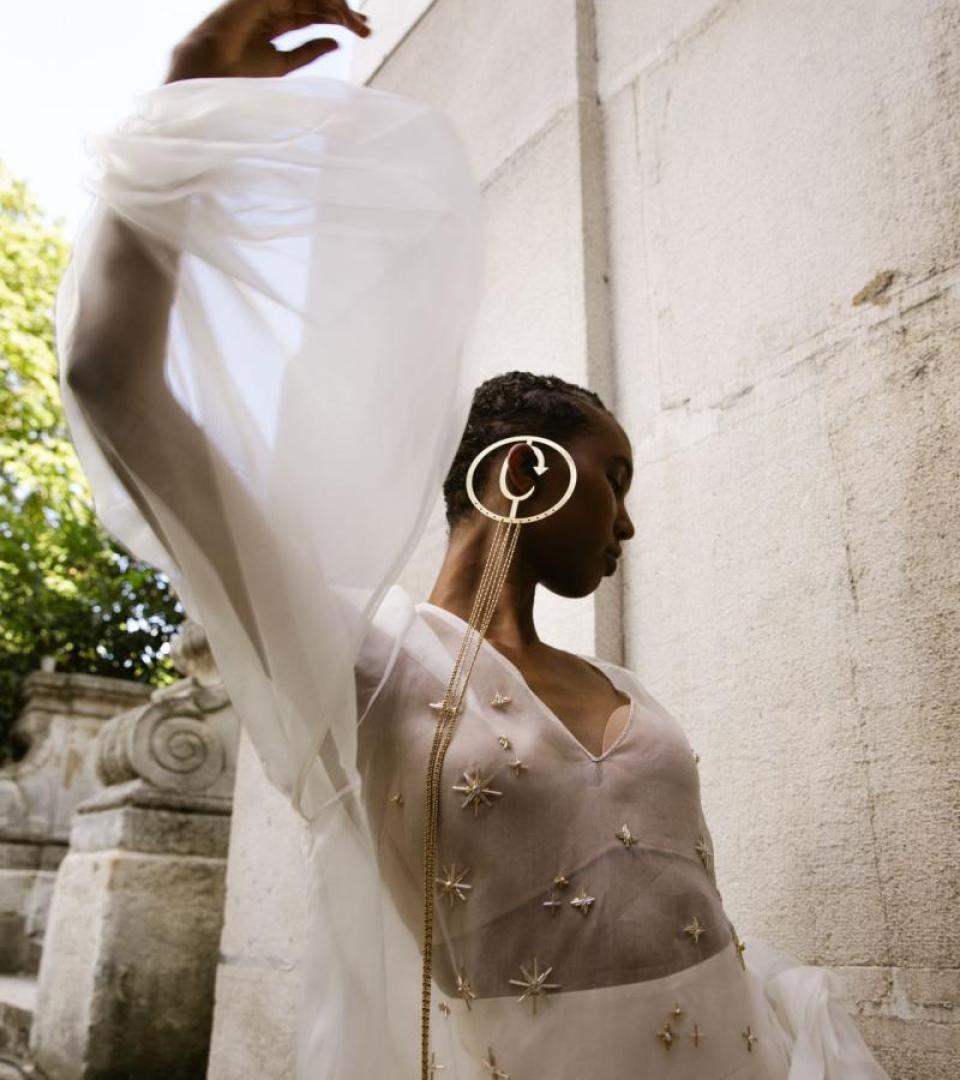This season marks 50 years of fashion weeks in Paris. What, for you, makes Paris Fashion Week® unlike any other?
This is an anniversary for me, also, as it has been 10 years since my first visit to Paris Fashion Week® (at the beginning only Men's Fashion Week). For me, this is the first season of the "next 10 years," and I want to take a close look at it.
Can you share your favourite memory from Paris Fashion Week®?
The Louis Vuitton Men's 2019 spring/summer season by Virgil Abloh. A long rainbow-coloured runway was set up at the Palais Royal for the show, in which 17 consecutive black models walked from the beginning. It was a sight to behold.
What excites you in fashion right now?
In Japan, it is no longer uncommon for men, not just fashionistas, to wear pearl accessories or skirts in everyday life. When it comes to clothing, the boundaries of gender are disappearing and even for so-called "ordinary people" will further advance the role of fashion.
What is one reason to be optimistic about the state of fashion going forward?
The fact that for many young designers and brands, themes such as sustainability, gender freedom, equality, traceability, and other topics come naturally to their creative and business processes — and this is game changing.
In what ways do you think AI might benefit fashion?
I think AI has the potential to make effective definitive cost cutting and help eliminate waste. On the other hand, I fear it might also have the disadvantage of appearing creative, while actually hindering human creativity, as we become accustomed to a tool that does things for us, making us mentally lazier. In any case, I think we are entering an era where a fashion business without AI is inevitable, so I will continue to watch closely and report on this.
Who or what will drive the greatest change in fashion this year?
It's very interesting to me that Haider Ackermann has become the creative director of Tom Ford. I'm excited to see what kind of creations he'll bring to the brand, as he returns to the forefront of the fashion scene. And there's another new talent I'm keeping an eye on: Satoshi Kuwata, the designer of Setchu, who also won the LVMH prize in 2023. I look forward to his future success in making clothes that are highly original, with high-quality materials, and full of skills and experience.
What impact might you hope to have on fashion through your work?
I want to contribute to a better society by writing articles that accurately convey both the great and bad events in the fashion industry to a wide range of people.
Can you suggest a fashion mantra as we look ahead to '25?
“Everything you wear has a meaning and it's related to the social sphere.”
This interview has been lightly edited.



